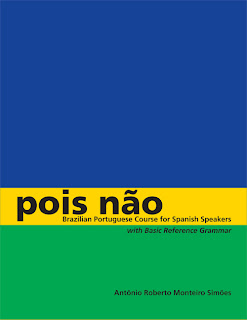
When I first started studying Brazilian Portuguese, my knowledge of Spanish was both an advantage and disadvantage. The advantage was that I was familiar with a lot of the vocabulary, which often looks identical, or nearly identical. The disadvantage is that the sounds of the two languages are very different, and it was hard for me to get beyond using my Spanish pronunciations for Portuguese words that were identical or very similar to their Spanish counterparts.
The biggest problem I had at first was the difference in the way final "o" is pronounced in the two languages. In Portuguese, final "o" has a sound that resembles English "oo", as in the word "too." In Spanish, it's similar to the sound of "o" in the English word "oh." (In both languages, the sound is shorter and not dragged out the way we might do in English).
I tended to pronounce Portuguese "lh" as I would Spanish "ll" and Portuguese "nh" as if it were Spanish "ñ," but in both cases, the Portuguese sounds are softer.
Then there were issues of syntax, with Spanish using the preposition "a" between forms of the verb "ir" and the infinitive to express "going to do something," while Portuguese does not.
Lauren, the author of Hacking Portuguese, has an excellent page that outlines the challenges facing a Spanish speaker who is learning Portuguese. She also links to a very thorough article on Wikipedia which addresses this topic. (Regardless of whether you speak Spanish or not, you have to check out Hacking Portuguese, which offers an amazing assortment of resources for learners at every level).
After I finished all three levels of Pimsleur, I realized that my Portuguese speaking skills were better than my Spanish speaking skills, even though I had only been studying Portuguese for a few months, and I had completed three years of college level Spanish.
So I decided to use Pimsleur to improve my Spanish.
I was a bit leery at first, because I didn't want it to interfere with my ongoing study of Portuguese. And at first, I had to do the exact opposite of what I did when I began the Pimsleur Portuguese program. Now, my final "o" sounded as if I were speaking Portuguese, and my "ñ" in words like "señor" sounded too soft, like Portuguese "nh". I also had to work on making sure that my "d" and "b/v" were properly articulated. But by the fifth or sixth lesson, I had overcome these problems, without losing my ability to speak Portuguese in the process.
I still stumble with certain words and phrases. "Un poco" in Spanish sometimes comes out as "um pouco," "cerveza" can sound like "cerveja," and I still sometimes use "é" instead of "es." I try to catch my errors and repeat the words correctly right away.
If there is enough time for me to do it, and if the sentence is really easy, I say the response in Spanish first, then repeat it in Portuguese (the scripts are almost identical in both programs, and from what I've read, this is true for all of the Pimsleur language programs). This helps me to reinforce the differences between the two languages, and also gives me a chance to switch between the two languages quickly.
The result of all of this is that I am finding that my spoken Spanish is a lot better than it ever has been. The vocabulary and the dialogues in level I of Pimsleur are much easier than what I'm able to read or write in Spanish, but what I'm getting from these lessons is the ability to say something in Spanish without having to stop and mentally translate it from English first. This is exactly the way Pimsleur worked for me with Portuguese, and it's why I am such a fan of the program.
I'm also finding that the book "Pois Não" has been extremely helpful, much more than it was when I first started learning Portuguese. "Pois Não" is specifically designed for speakers of Spanish who are learning Brazilian Portuguese. It's not the ideal beginning textbook, at least it wasn't for me, but now that I've finished all three levels of Pimsleur Portuguese and have started an active review of Spanish, the book is exactly what I need. Not only does the author include vocabulary lists comparing Portuguese and Spanish words, he constantly refers to Spanish in his explanations of Portuguese grammar. If you have any knowledge of Spanish and you're trying to learn Brazilian Portuguese, you should at least consider investing in "Pois Não" at some point in your studies. For the money, it's one of the best resources available, even offering a very comprehensive program which includes a CD containing audio and video clips.
I'm also revisiting the "Tá Falado" podcasts, this time paying much closer attention to the Spanish speaker than I did the first few times I listened to them.
So, after my initial concerns about interference in learning that my knowledge of Spanish was causing, I can now see that because the languages share such a large vocabulary and are similar in so many other ways, a learner can use one language to develop skills in the other.


Thank you for sharing your experience and knowledge. Your blog provides a wealth of information!
ReplyDelete